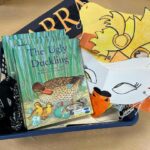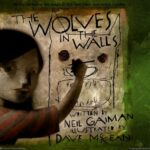
What?
Professional Standard #9 for BC Educators states that: “Educators respect and value the history of First Nations, Inuit, and Metis in Canada and the impact of the past on the present and the future. Educators contribute towards truth, reconciliation, and healing. Educators foster a deeper understanding of ways of knowing and being, histories, and cultures of First Nations, Inuit and Metis.” Educators understand that Truth and Reconciliation is not a token concept that is focused on for one day on September 30th, they understand that healing can start occurring as Indigenous ways of knowing are embedded into everyday lessons and becomes part of the classroom culture.
So What?
Moving Forward Together is a wonderful video that illustrates the reason that standard 9 is so important. There are students who still feel the effects of racism and the trauma of the past. Indigenous culture needs to be respected and integrated into our curriculum in order for healing to take place. As the Hon. Justice Senator Murray Sinclair said, “education is the means by which we will be able to fix this.”

/manitoba/author/sen-murray-sinclair-1.5828736
He shared that, “teachers in particular have a sacred responsibility to ensure that all their children, regardless of their heritage, are able to think about four key questions throughout their education: where do I come from, where am I going, why am I here, and most importantly, who am I?
He goes on to say that, “while all children should be able to know about their ancestors and their creation story, their beliefs about the future, and their purpose on this earth, the most important and unending question is “who am I?” Or rephrased, “who or what do I want to be?” It was the failure of the education system through the creation of residential schools and other government policies that deliberately and systematically prevented First Nations, Metis and Inuit children across the country from being able to explore this question” (Hon. Senator Murray Sinclair)
Now What?

Educators have the opportunity and challenge to be agents of change (as outlined in UVic teacher competency 10) and to embed Indigenous ways of knowing in their lessons and classrooms to promote inclusivity, cultural awareness, and reconciliation. Incorporating these perspectives organically and consistently helps students develop a deeper understanding of diverse worldviews, fosters respect for Indigenous knowledge, and contributes to a feeling of connection and community. When every student feels connection, valued, and respected, then perhaps healing can take place.




judi61
March 4, 2025 — 10:17 pm
Somer,
Your curation and weaving of Teacher Competencies, a Reflective Teaching Model and your thoughts about ‘The Why of Truth and Reconciliation’ was poignant and heartfelt. I appreciate how you are able to synthesize all of this for an 8:30 Monday morning class!
Judi